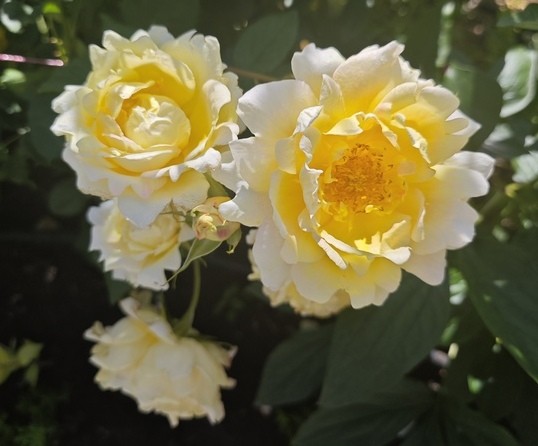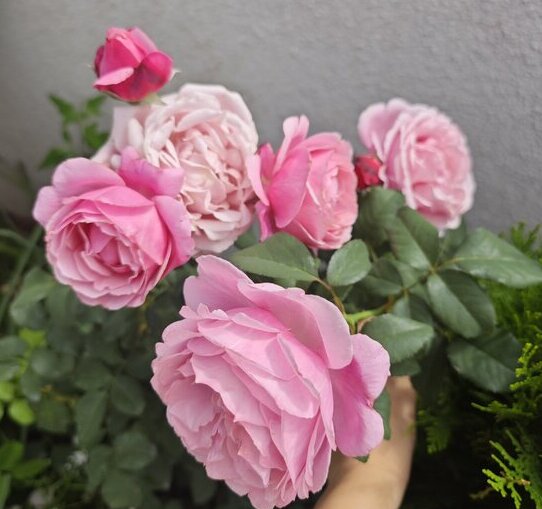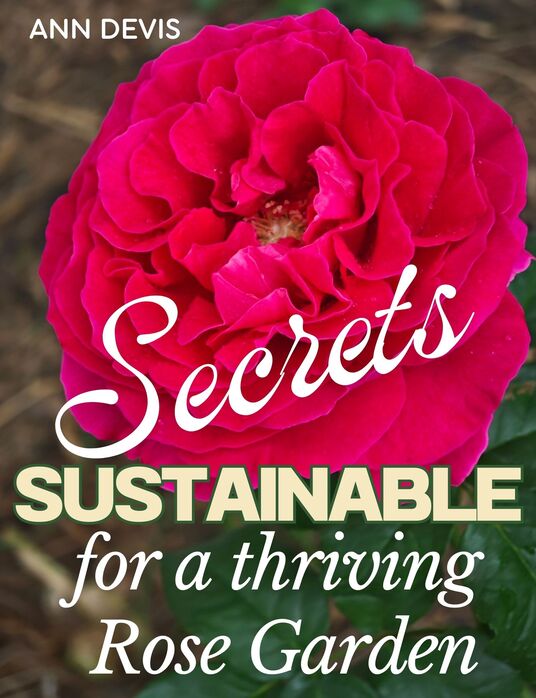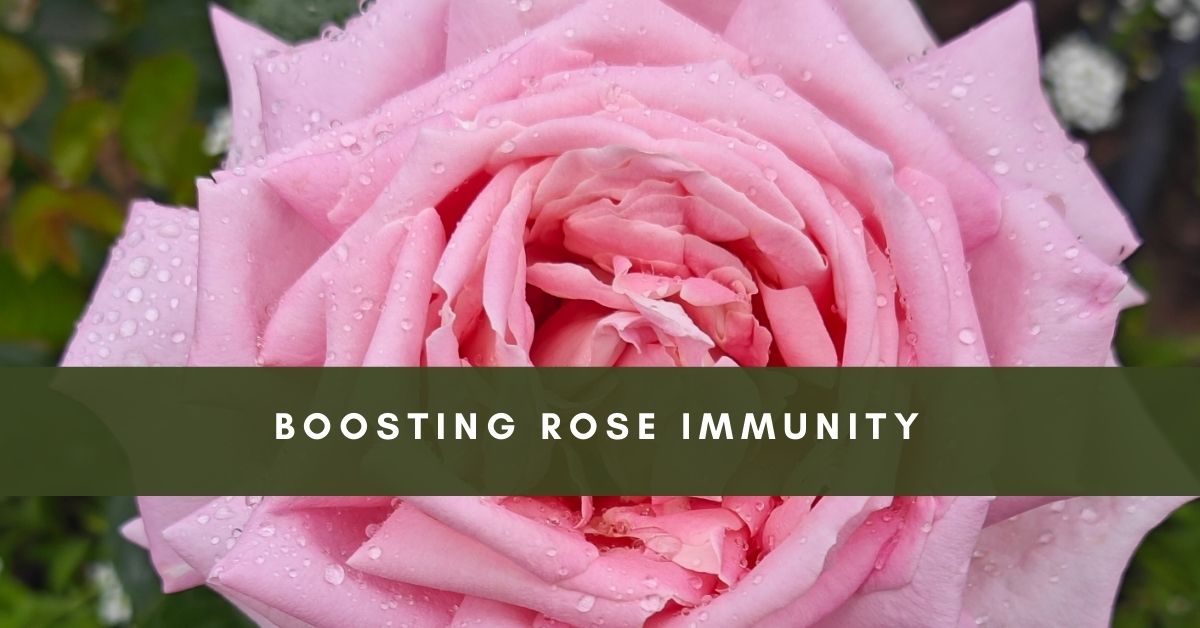A rose’s ability to fight off disease is heavily influenced by the condition of the soil it grows in. While many gardeners opt for mineral fertilizers as a quick solution, it’s essential to understand that roses, like all plants, can’t directly absorb these minerals. Instead, they rely on beneficial microorganisms in the soil, known as microbiota, to convert these nutrients into a usable form. This makes healthy soil essential for boosting a plant’s natural defenses. This article explores the importance of fertile soil for rose health, discusses the risks associated with mineral fertilizers, and introduces natural alternatives like “green fertilizer.”
The Connection Between Soil Health and Rose Immunity
Soil is far more than just dirt—it’s a dynamic ecosystem teeming with life, from bacteria and fungi to earthworms. These organisms play a critical role in breaking down organic matter into humates and microelements, which roses and other plants need to thrive. When soil is healthy and alive with beneficial microbes, roses grow stronger and better equipped to resist diseases, pests, and environmental stressors.

How Microorganisms Enhance Plant Immunity
Soil microorganisms, such as bacteria and fungi, are the unsung heroes of a healthy garden. They break down organic materials like fallen leaves, compost, and plant debris, releasing essential nutrients such as nitrogen, phosphorus, and potassium in a form that plants can absorb. Without these helpful microbes, roses would struggle to access the nutrients they need to grow robust and resilient.
Key point: Cultivating a rich, diverse soil ecosystem promotes healthier, more disease-resistant roses.
The Hidden Risks of Mineral Fertilizers
While mineral fertilizers may offer a quick nutrient boost, they often do more harm than good in the long run. These highly concentrated fertilizers can upset the balance of the soil’s microbial community, limiting its ability to process nutrients naturally. Over time, this can lead to soil degradation and weaken plant health, making roses more vulnerable to disease and stress.

How Mineral Fertilizers Affect Soil Microorganisms
When mineral fertilizers are applied directly to the soil, they can harm the microbiota essential for nutrient processing. These fertilizers can create an issue in the soil’s pH and salinity, reducing the population of beneficial microorganisms and increasing the risk of nutrient leaching, where essential nutrients are washed away before plants can absorb them.
Garden tips
If you must use mineral fertilizers, it is better to apply them as a foliar spray directly onto the rose leaves. This way, the nutrients are absorbed by the plant without disrupting the delicate balance of soil life.
Organic Fertilizers: The Key to Soil Health
Instead of synthetic fertilizers, rest assured that organic fertilizers are a reliable choice that nourishes the soil and enhances fertility. Organic fertilizers break down slowly, providing a steady supply of nutrients while supporting soil microorganisms. Some excellent organic options for roses include: Instead of synthetic fertilizers, opt for organic fertilizers that nourish the soil and enhance fertility. Organic fertilizers break down slowly, providing a steady supply of nutrients while supporting soil microorganisms. Some excellent organic options for roses include:
- Compost: Decomposed organic matter rich in nutrients.
- Humus: The organic component of soil formed by the decomposition of leaves and other plant material.
- Rotted Grass: Grass that has decomposed into a nutrient-rich matter.
- Vermicompost: Worm-castings that are high in nutrients and beneficial for soil health.
Benefits of Organic Fertilizers
Organic fertilizers are slow-releasing, meaning they nourish the plants over time rather than in a quick burst. They also help improve soil texture, enhance water retention, and boost microbial activity—all of which are essential for a healthy root system and more robust roses.

The Organic Rose Revolution: Grow Stunning Blooms, Naturally
- Unlock the secrets of nurturing your roses organically with our guidance on soil health, natural fertilizers, and sustainable pest control methods. Your garden will thrive with eco-friendly care that respects nature’s balance.
- Empower yourself with the knowledge to craft natural remedies for common rose ailments.
- Banish pests from your garden precisely using proven strategies that safeguard your roses without harsh chemicals. Keep aphids, mites, and other invaders at bay while preserving your garden’s natural harmony.
- Explore a world of breathtaking rose varieties carefully curated to captivate your senses and elevate your garden to new heights of beauty.
The Benefits of Green Fertilizer
Green fertilizer is an organic, nutrient-packed solution you can easily create using herbs and plants at home. This potent natural fertilizer delivers essential micronutrients and beneficial microbes to your roses, boosting their immunity and overall vitality.
Simple Homemade Green FertiliHere’sRcipe (H3)
Here’s an easy recipe for making your green fertilizer using common garden herbs:
Ingredients:
- Nettle: Rich in nitrogen and minerals
- Comfrey: Contains high levels of potassium and nitrogen
- Dandelion leaves: A good source of trace elements like iron and magnesium
- Yarrow: Promotes plant growth.
- Water: Ideally, use rainwater for best results
Instructions:
- Collect a mix of green herbs like nettle, comfrey, dandelion, and yarrow.
- Chop the herbs into small pieces and place them in a large bucket.
- Fill the bucket with water, making sure the herbs are fully submerged.
- Let the mixture ferment for 2-3 weeks, stirring occasionally. During this time, the herbs will break down and release valuable nutrients.
- Once the fermentation process is complete, strain the liquid and dilute it with water (1 part fertilizer to 10 parts water).
- Use the diluted mixture to water your roses at the base or spray directly onto their leaves.
Garden tips
Green fertilizer is packed with micronutrients, so apply it every two weeks during the growing season for best results.
The Aerated Method for Green Fertilizer
For an even more potent version of green fertilizer, you can use the aerated method, which involves adding oxygen to the fermentation process. This technique causes materials to decompose and increases the final product’s beneficial microbial activity.
How to Make Aerated Green Fertilizer
- Follow the same steps as outlined in the traditional green fertilizer recipe.
- After adding water to the chopped herbs, insert an aeration pump (like the kind used in fish tanks) into the bucket.
- Run the pump for 24-48 hours to introduce oxygen into the mixture. The oxygen will accelerate microbial activity, quickly breaking down the organic matter.
- After the aeration process, strain and dilute the mix, just as with the traditional method.
- Benefits of Aeration: The aerated method produces a more nutrient-dense solution and significantly reduces the unpleasant odor associated with fermentation. It also enhances the microbial diversity in the fertilizer, giving your roses a more potent immune boost.
Boosting rose immunity
The key to boosting your roses’ immunity lies in your hands. By nurturing the soil they grow in, you can create a healthy environment rich in organic matter and teeming with beneficial microorganisms. This is essential for producing resilient, disease-free plants. By avoiding harmful mineral fertilizers and opting for organic alternatives like green fertilizer, you can improve soil fertility and give your roses the nutrients they need to thrive.
By embracing these natural techniques, your roses will not only bloom more beautifully but also develop the strength to resist diseases, pests, and environmental stressors. Imagine the vibrant, healthy blooms that will grace your garden, a testament to your nurturing care and the power of organic gardening.
FAQ
Soil health is crucial because it directs the plant’s ability to absorb nutrients. Healthy soil is rich in microorganisms that process nutrients, allowing roses to develop stronger immunity and produce more vibrant blooms.
While mineral fertilizers are applied, it is better to misapply them as a foliar spray rather than directly into the soil. This minimizes harm to the beneficial microorganisms living in the soil, which are vital for plant health.
Green fertilizer can be applied every two weeks during the growing season. It provides a gentle, steady release of nutrients that support the roses’ overall health and immunity.
The aerated method involves adding oxygen to the fermentation process, which speeds up decomposition and increases the number of beneficial microorganisms in the fertilizer. This results in a more potent, nutrient-rich solution that enhances plant growth and immunity.

